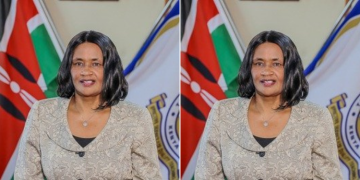The Teachers Service Commission (TSC) medical insurance was introduced in 2015, with Minnet contracted as the private insurance administrator and third-party manager to administer the teachers’ medical insurance scheme for over 400,000 teachers and their dependents.
Over 800 hospitals and clinics were contracted nationwide for cashless treatment. The contract will expire on November 30, 2025, after 10 years, paving the way for the Social Health Authority (SHA) to take over the role as the government insurer to facilitate cashless treatment for the teachers and their dependents.
In a presentation by the Teachers Service Commission (TSC) shared on November 10, the commission highlighted the challenges that teachers faced under the Minet cover, within the contracted period.
Challenges That Teachers Face Under Minnet Medical Cover
- Limited Access to health facilities across the country.
According to the teachers’ employer, Minnet Medical Cover had contracted 816 hospitals and clinics for treatment, many of which are inaccessible in rural areas.
Teachers, in turn, faced difficulties in obtaining medical care, especially in the remote regions, leading to logistical challenges and delayed treatment.
- Rejection of admission
In addition, TSC reported widespread complaints that teachers’ hospital admission or treatment approvals were denied or delayed by Minet, leaving them unable to access covered care.
This made teachers pay for the medical bills using their personal funds
Also Read: SHA Packages Teachers in Every Job Group Will Enjoy After TSC Shift from Minet
- Lengthy procedures for approval of admissions and discharges
The medical scheme required pre-authorization for nearly all inpatient and outpatient admissions, specialist referrals, surgeries, and even discharge approvals. These lengthy procedures took a long time, leading to delayed care and out-of-pocket expenses.
- Inadequate specialists in the selected facilities
According to TSC, specialists in most of the contracted facilities, especially in outpatient facilities, were inadequate, forcing teachers to use their personal funds.
- Management of chronic conditions
As the the Commission, chronic conditions like diabetes, hypertension, asthma, cancer, and arthritis were poorly managed under the Minet medical scheme. As a result, teachers with these conditions used their personal funds to treat themselves.
Other challenges included an inadequate supply of high-quality drugs, a limited number of optical and dental care providers empaneled, an insurance model with restricted coverage for dependents, and a one-size-fits-all benefit structure.
Also Read: Unions to Table Demands Ahead of TSC Migration of 400,000 Teachers to SHA
Mitigation measures enacted
Following the enactment of the regulation of the Public Officers Medical Scheme Fund, the commission engaged SHA to manage the medical cover under POMSF.
SHA will now give teachers access to 9,016 hospitals across the country (these include public, private, and faith-based hospitals), unlike Minet, which had contracted 816 hospitals across the country.
In the management of chronic conditions (inpatient, outpatient, and overseas), under the existing conditions, SHA will now introduce two additional benefits: Le SHIF (Social Health Insurance Fund) and ECOHIF (Emergency, Chronic, and Critical Illness Fund).
The admission process has now been fully automated with zero human interface. Teachers will be required to utilize their limits responsibly to cover the year.
Follow our WhatsApp Channel and X Account for real-time news updates.






















































![Senator Allan Chesang And Chanelle Kittony Wed In A Colourful Ceremony [Photos] Trans Nzoia Senator Allan Chesang With Channelle Kittony/Oscar Sudi]( https://thekenyatimescdn-ese7d3e7ghdnbfa9.z01.azurefd.net/prodimages/uploads/2025/11/Trans-Nzoia-Senator-Allan-Chesang-with-Channelle-KittonyOscar-Sudi-360x180.png)





















